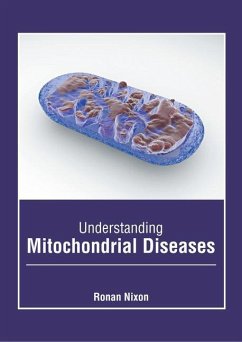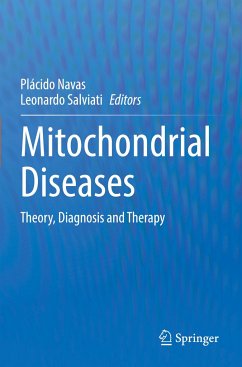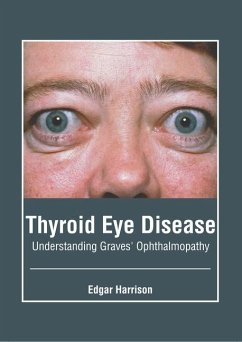
Understanding Mitochondrial Diseases
Versandkostenfrei!
Versandfertig in über 4 Wochen
124,99 €
inkl. MwSt.

PAYBACK Punkte
62 °P sammeln!
Mitochondrial diseases refer to a group of disorders that are caused due to dysfunctional mitochondria. They may arise due to mutations in the mitochondrial DNA or in nuclear genes which code for mitochondrial components. Some of the conditions for which there exists evidence for the association of mitochondrial dysfunction are Huntington's disease, Alzheimer's disease, bipolar disorder, Parkinson's disease, schizophrenia, etc. When defective mitochondria occur in the muscles, nerves or cerebrum, they lead to debilitating conditions. The symptoms of mitochondrial disease are loss of muscle coo...
Mitochondrial diseases refer to a group of disorders that are caused due to dysfunctional mitochondria. They may arise due to mutations in the mitochondrial DNA or in nuclear genes which code for mitochondrial components. Some of the conditions for which there exists evidence for the association of mitochondrial dysfunction are Huntington's disease, Alzheimer's disease, bipolar disorder, Parkinson's disease, schizophrenia, etc. When defective mitochondria occur in the muscles, nerves or cerebrum, they lead to debilitating conditions. The symptoms of mitochondrial disease are loss of muscle coordination, poor growth, muscle weakness, hearing and learning disabilities, visual difficulties, liver disease, heart disease, kidney disease, gastrointestinal disorders, etc. The most common diagnostic tests for the detection of mitochondrial diseases are PCR and specific mutation analysis, southern blot and sequencing. Spindle therapy, embryonic mitochondrial transplant and protofection are potential treatments for inherited mitochondrial diseases. This book includes some of the vital pieces of work being conducted across the world, on various topics related to mitochondrial diseases. It consists of contributions made by international experts. With state-of-the-art inputs by acclaimed experts of medical genetics, this book targets students and professionals.












